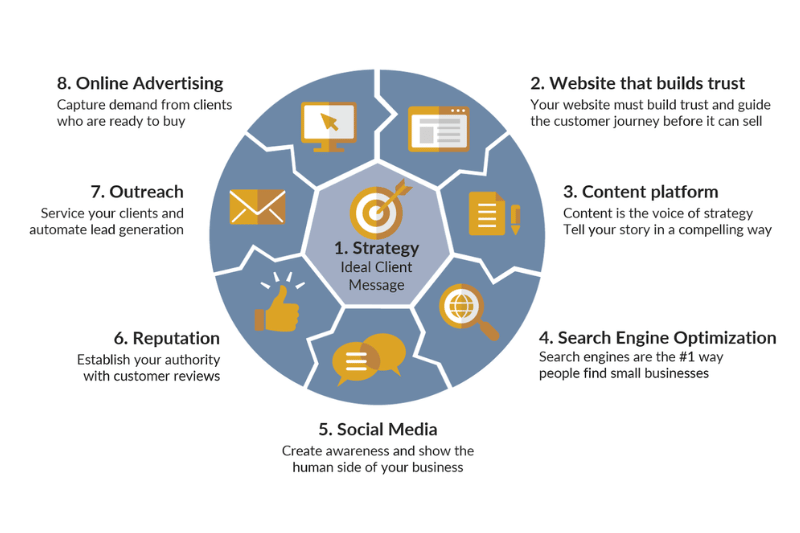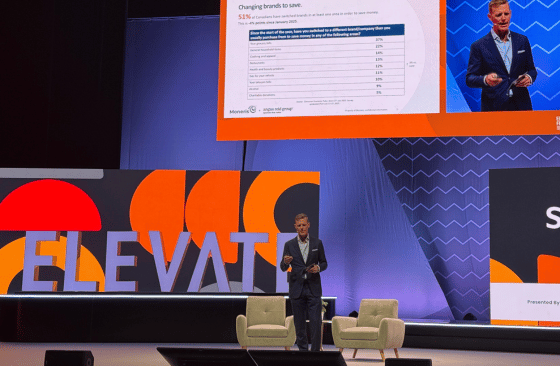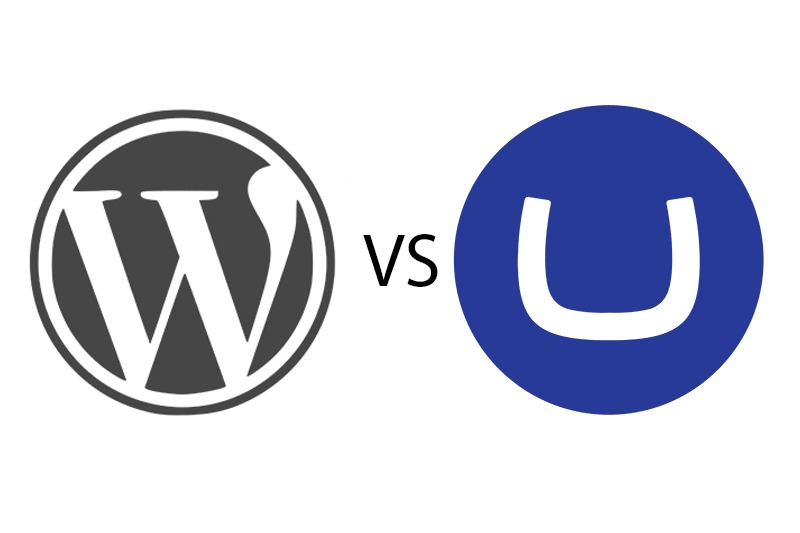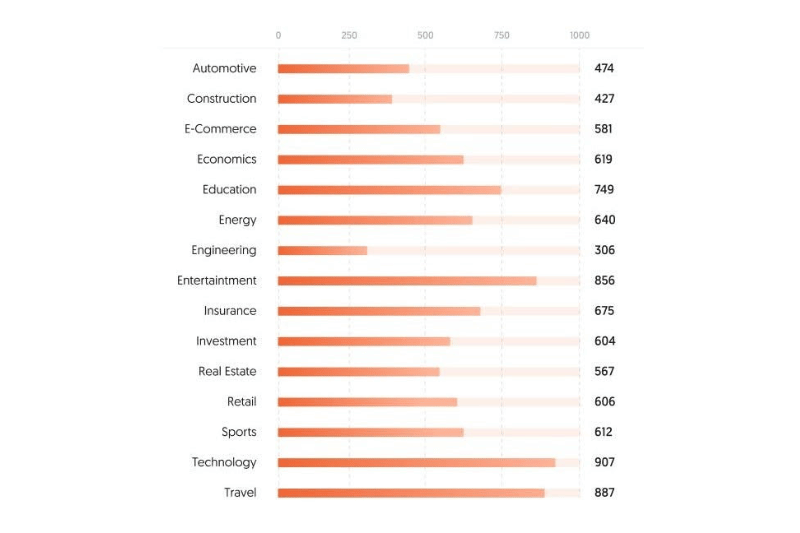Canada Takes on Tech Giants in a Battle For Content Revenue

The battle over who financially benefits from news content that is available on Google and Facebook affects us all. Do we want tech giants to decide which news we are provided based on their business objectives rather than what is currently happening in the world?
Let's start with why this issue exists:
Google Provides Answers to our Searches Directly Within Search Results
Have you noticed that when you are doing a quick search on Google for a name, a definition, or a flight, you don’t leave Google at all because you already have what you need? Google has become so good at compiling data from website content creators that the content that appears within the search result is often enough.
Well, this content belongs to other content creators , which could include you.
For example, when you are watching a show or a movie, doing a quick look-up of the actor is answered right in Google:
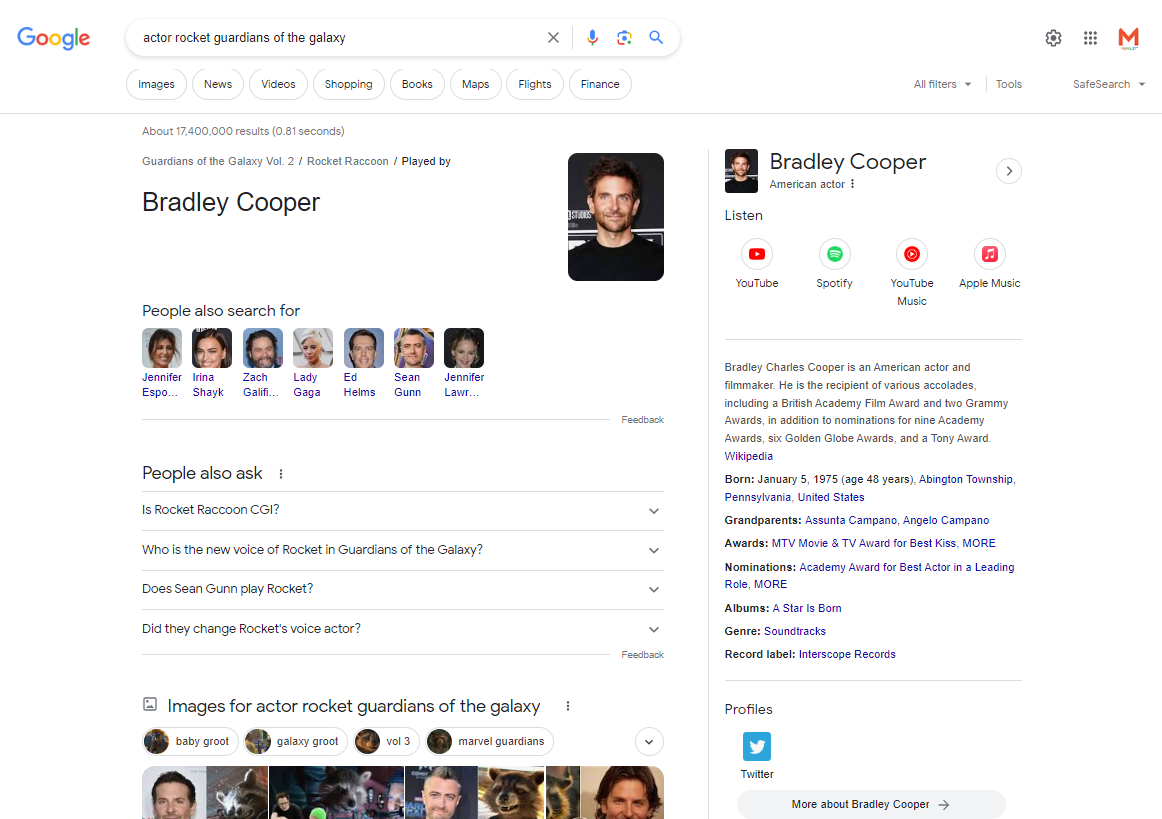
Or checking on when a flight comes in so you can time your trip to the airport well:
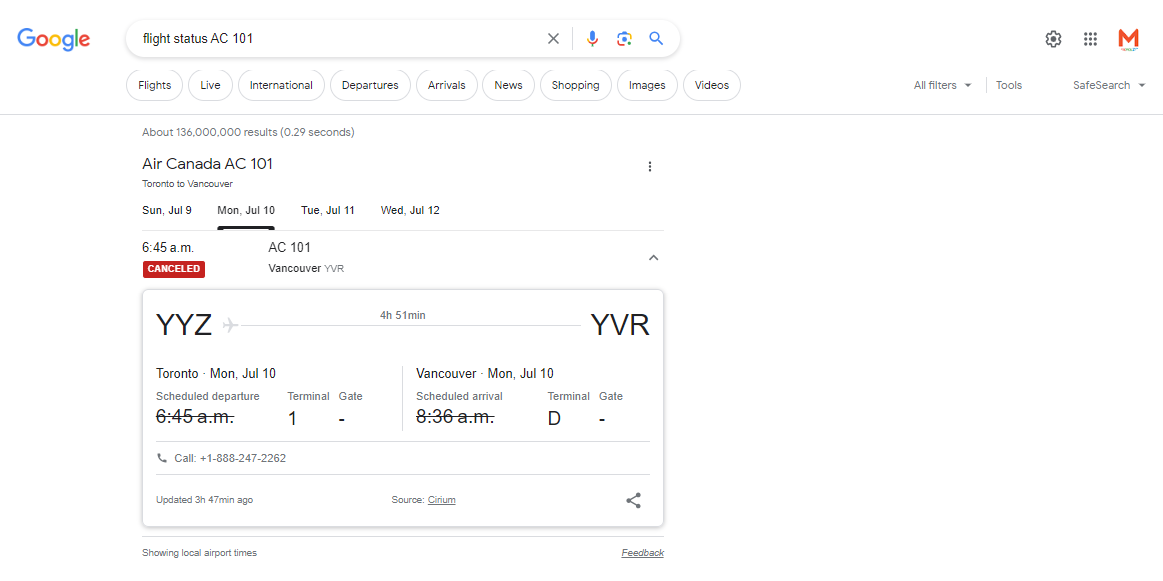
Google Optimizes Search Results Based on Search Engine Optimization (SEO) Efforts
Google uses more than 200 factors that decide the ranking of content in their search results. It “scrapes the internet” for this content by sending out web crawlers. These crawlers hit a single webpage in varying frequency, ranging from a few days to a few weeks.
In addition, Google has specific requirements of websites that will help them rank higher in search results (SEO). Digital marketing agencies like Mawazo Marketing constantly optimize websites for ongoing improvement to search ranking. Part of this effort includes focusing content on specific keyword phrases and providing details to Google on the context and structure of content in order for this content to appear in a specific format.
For example, many questions asked in Google searches are answered within the “People also ask” section of the Google search results page. Google understands this content to be FAQs on your website because Structured Data codes are used in the backend:
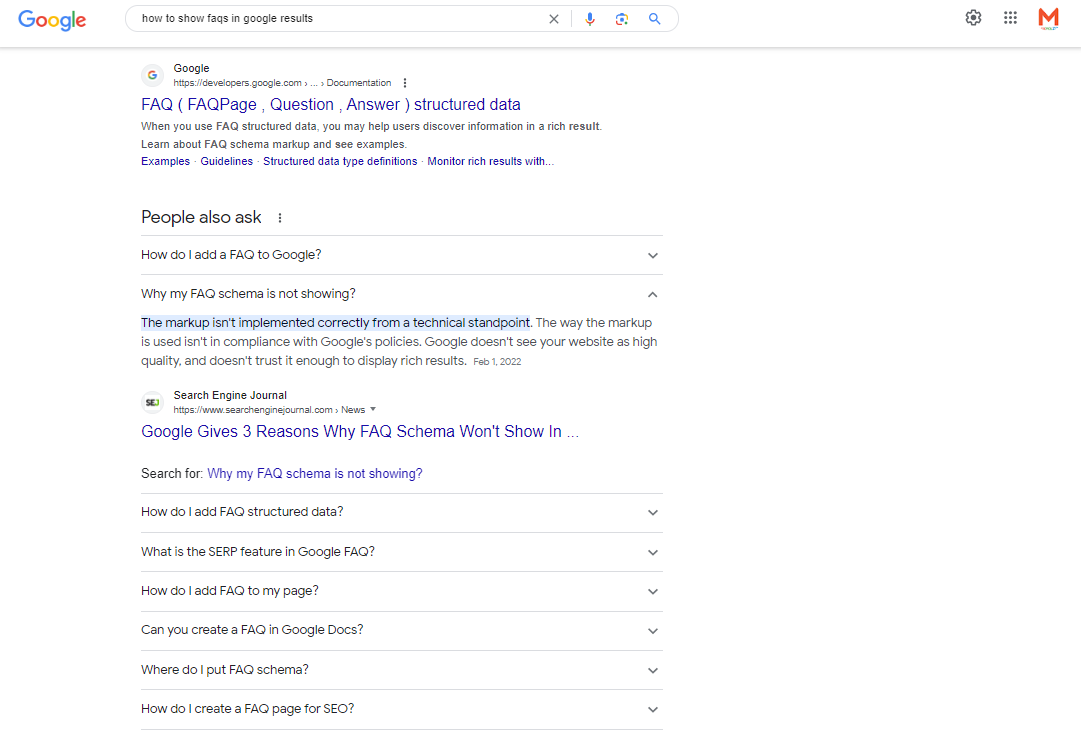
Why Does it Matter as Long as Your Content is Found?
The main goal for having your content found on Google is to drive traffic to your website to meet your business goals. These goals could be selling products, adding contacts to a mailing list, generating traffic for advertising revenue, etc.
New Paragraph
This is of the utmost importance for news agencies, as their entire business is their content.
News is Consumed as "Tiny Bites"
News is now consumed in “tiny bites”, where we scroll through headlines and subtexts to get our fill of current events. These tiny bites are readily available on Google and social media feeds, which means that people are not clicking through from search results or social feeds to the full article. News content creators do not benefit in gaining traffic to their website from this content, and in turn are unable to generate an income from website visitors, whether from advertising, subscription or other revenue models.
For the example below, for many people it is enough to learn about current events by simply scanning the headlines and subtexts:
For the example below, for many people it is enough to learn about current events by simply scanning the headlines and subtexts:
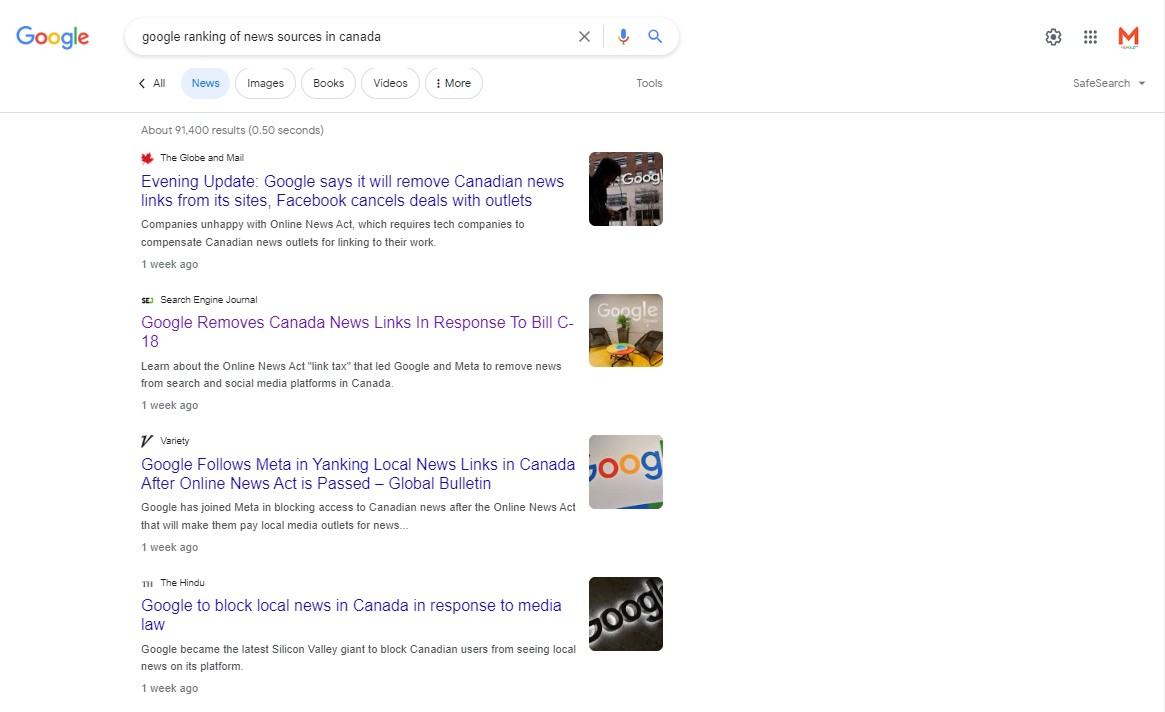
Canada’s Battle with Google is Important
The world is watching — Though Canada is not the first to go up against Google on compensation for content (Google Is Suddenly Paying for News in Australia. What About Everywhere Else? NY Times | Nov 16, 2021), the new law, Online News Act (Bill C-18), could become a model for other countries around the world.
“The Online News Act requires both companies [Google and Facebook] to enter into agreements with news publishers to pay them for news content that appears on their sites if it helps them generate money.” - CTV News
Negotiations between Google and the Canadian government continue, and it is expected that an agreement will be in place before the law takes effect at the end of this year. If not, Canadian news links will no longer appear in Google search results. News about Canada would only appear if coming from international news agencies.
Some Canadians are Already Banned from Canadian News Content on Google
Until an agreement is reached, there are currently 4-5% of Canadians that are already experiencing this ban on Canadian news content, and may not even know it. Google has indicated that they are testing their approach to banning the links. One would question whether this is a test or a method of intimidation…
Meta Is Taking a Stronger Stance Against the Canadian Law
Meta is the parent company of Facebook, Instagram and their recently launched Twitter-like platform "Threads". The Canadian government is in a similar battle with Meta over financially compensating Canadian news organizations for their content, however Meta is currently refusing to negotiate at all.
In retaliation, the government has halted all advertising on Meta platforms, which would normally be a budget of approximately $10 million per year. Some news agencies have also halted advertising, such as Quebecor and Cogeco.
Avoid Passive Consumption of Online Content
Tech giants are attempting to take control over what we see and when. This means that we only know what they want us to know, unless we take control over how we inform ourselves. Passive consumption of information is dangerous - actively pursue credible sources of information.
Do you have any questions on the above, or would you like to share your experience? Just email ideas@mawazo.ca or call +1 (833) 503-0807.
At Mawazo Marketing we work with owners of B2B companies who want to accelerate their business. We help them with a concrete digital growth plan, a website that saves operational cost, and a digital marketing system that generates leads. For qualifying clients we offer a 5x ROI guarantee: if we don't reach the objective, then we pay back the difference. Book a Free Strategy Session to find out more.
